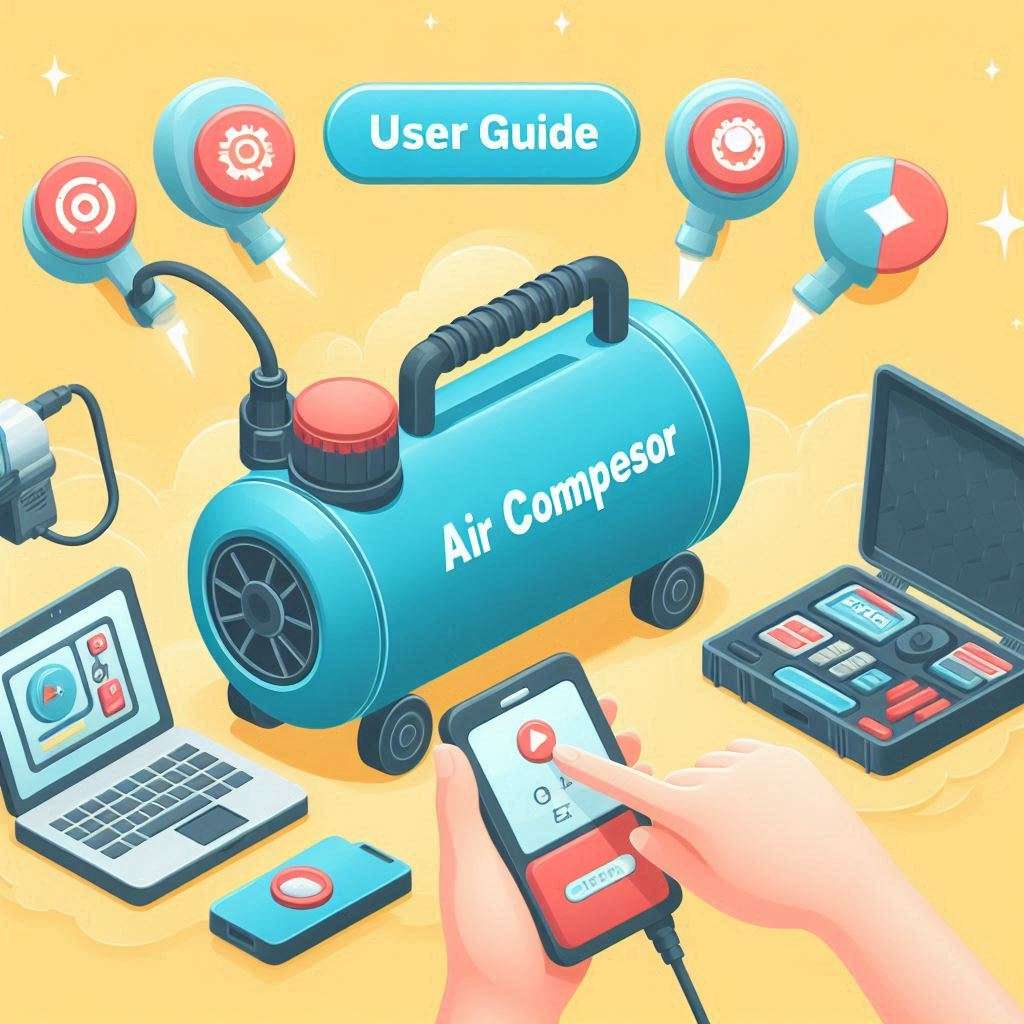
Portable air compressors are the most versatile type of air compressors that can be transported anywhere and are suitable for lightweight as well as heavy tasks. They are the most convenient option for tasks where space is congested and the compressor tasks are performed on an ocassional basis rather than daily. In this blog we will give you some useful tips to guide you in selecting the air compressor that matches your needs and make your life easier.
Before you purchase an air compressor you need to know whether your application or task needs a heavy-duty compressor or a lighter one. Air compressors come with different tank capacities that deliver different power levels
Low Power Applications: If you intend to buy air compressor for small jobs like dust blowing, inflating tires etc. than a compact air compressor is the ideal option. Such compressors have a tank capacity of 1 to 3 gallons and deliver a pressure of 90-120 PSI.
Medium Power Applications: Operating automatic air powered equipment requires a higher air pressure so paint sprayers, impact wenches and brad nailers would need bigger compressors with a tank capacity of 6-10 gallons and a pressure rating of 120-150 PSI.
High Power Applications: For heavyweight tasks like sandblasting and high pressure tools means that you purchase a high powered compressor with a tank capacity of at least 15 gallons and a pressure rating of more than 150 PSI.
When it comes to compressor performance pressure rating is only one half of the equation and flow rate also known as Cubic Feet per Minute (CFM) also matters a lot. CFM essentially means the volume of air delivered in a minute and this can have a direct impact on tool performance. Tools that require higher CFM requirement demand a more powerful compressor that delivers a high CFM.
Air compressors can be classified into two types based on power options gas powered and electric. Electric compressors benefits are that they make low noise and operate silently which is a major positive since silent compressors are great for use in residential areas where people prefer less noise. They are alos great for indoor tasks. Electric air compressors also have a low maintenance cost. The drawback of electric compressors is that they’re capable for light and medium applications as their power output is low.
In contrast Gas powered compressors upside is that they are capable of high-power output and are also mor portable as they do not need a socket nearby to be plugged in which makes them easy to setup anywhere.
The downside of gas powered air compressors is that they make a lot of noise and also give off fumes. This makes them unsuitable to use indoors. Moreover gas operated compressor require more maintenance.
If your tasks are related to indoor use than an electric portable air compressor is a better choice while for outdoor heavyweight tasks a gas powered air compressor is preferable.
A vital specification that you should take into account while choosing an air compressor is the duty cycle. A duty cycle is basically the percentage of time the compressor can function without overheating. For instance a 50% duty cycle denotes that the air compressor can run for 50 minutes and requires a cooling period of 50 minutes.
The higher the duty cycle the more continuous the operation so high powered portable compressors for heavy workloads come with a duty cycle of 75% or more for continuous use.
One of the most important aspect of choosing a compressor is the brand. Make sure to select a reputable brand that provides a warranty period and also has a reliable technical support team that gives efficient and proactive after sales service and repairs in case of malfunction. Do in-depth research about the maker and read customer reviews before investing in a portable air compressor.
Many air compressors come with extra features, including:
• Automatic Shutoff: Halts the motor when the tank achieves its maximum pressure.
• Oil-Free Design: Minimizes maintenance requirements.
• Pressure Regulator: Provides precise pressure adjustment for various tools.
• Drain Valve: Facilitates easy removal of water buildup in the tank, helping to prevent rust and corrosion.
Choosing the right portable air compressor involves considering an array of factors to match your specific needs. Start by assessing the type of tasks you need it for and the required PSI and CFM ratings to ensure it can handle your tools. Consider the power source, whether electric or gas, and the compressor's weight and size for ease of transportation. Additional features like automatic shutoff, oil-free design, pressure regulators, and drain valves can enhance functionality and convenience.